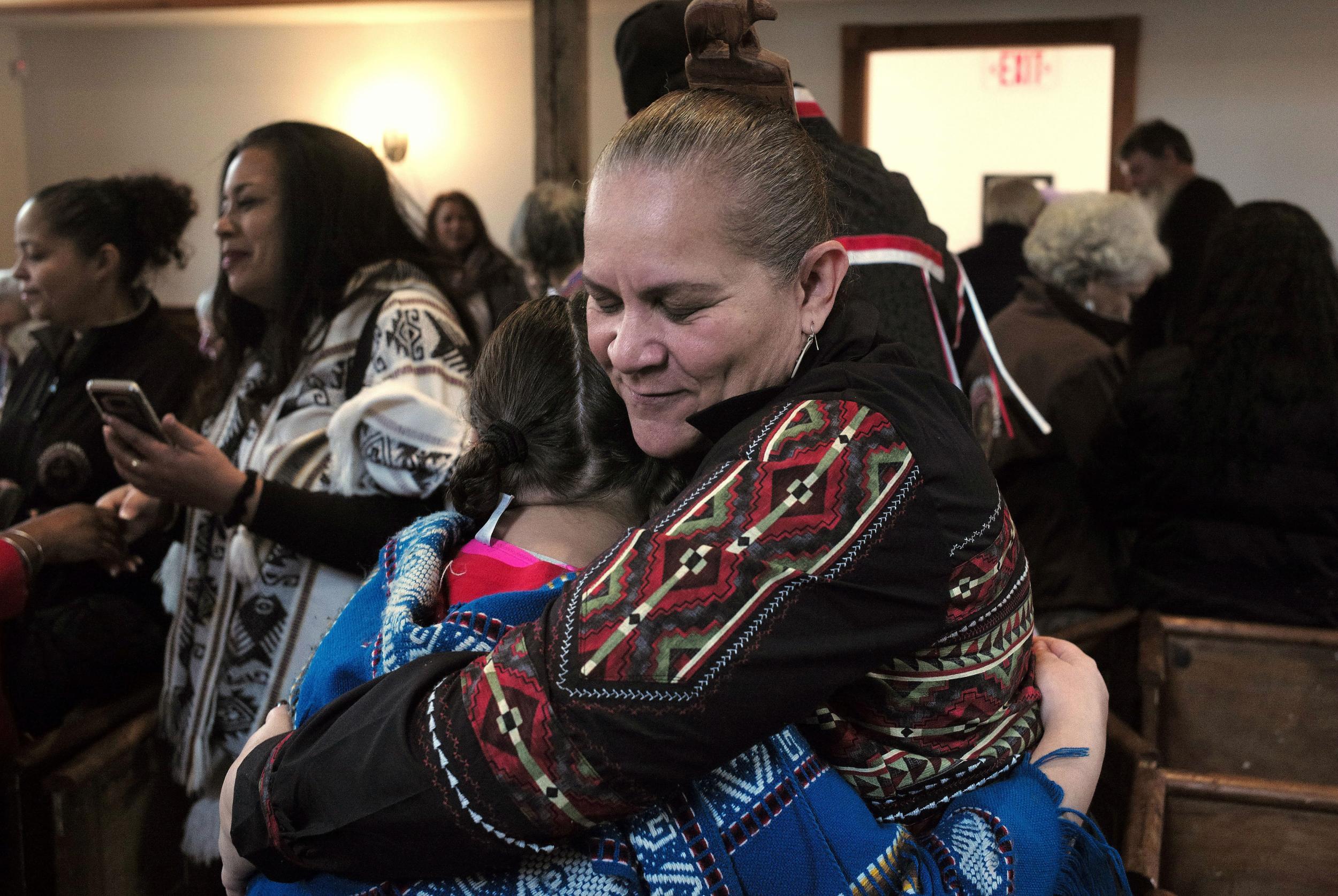Thanksgiving: Tribe whose ancestors ate with Pilgrims revives lost language after prophetic dreams
The tribe has its first native Wopanaotooaok speaker for six generations
Your support helps us to tell the story
From reproductive rights to climate change to Big Tech, The Independent is on the ground when the story is developing. Whether it's investigating the financials of Elon Musk's pro-Trump PAC or producing our latest documentary, 'The A Word', which shines a light on the American women fighting for reproductive rights, we know how important it is to parse out the facts from the messaging.
At such a critical moment in US history, we need reporters on the ground. Your donation allows us to keep sending journalists to speak to both sides of the story.
The Independent is trusted by Americans across the entire political spectrum. And unlike many other quality news outlets, we choose not to lock Americans out of our reporting and analysis with paywalls. We believe quality journalism should be available to everyone, paid for by those who can afford it.
Your support makes all the difference.A native American tribe whose ancestors famously ate a Thanksgiving meal with the US’s first European colonisers, are working to revive a forgotten language after one of their members had a series of prophetic dreams.
The Mashpee Wampanoag tribe, which is based in and around Cape Cod in Massachusetts, have started immersion classes for youngsters to teach them the language that was lost for decades.
“From having had no speakers for six generations to having 500 students attend some sort of class in the last 25 years? It’s more than I could have ever expected in my lifetime,” Jessie “Little Doe” Baird, the tribe’s vice chairwoman, told the Associated Press.
The push to inject new life into a number of native American languages started to gather pace in the 1990s. Today, an estimated 550 tribes are involved in such efforts.
Ms Baird has been at the forefront of the fight to revive Wopanaotooaok, which has contributed a number of words that have become a fixture in the English language, among them pumpkin (spelled pohpukun in Wopanaotooaok), moccasin (mahkus), skunk (sukok) and powwow (pawaw).
These days, a total of 19 children from Wampanoag households are taught exclusively in Wopanaotooaok, a language that had not been spoken for at least a century.

Two decades ago, Ms Baird, then in her 20s and with no formal training in linguistics, started to develop a grammar, with the help of other tribal members and experts at the Massachusetts Institute of Technology.
She also used historical documents written in Wampanoag, including personal diaries, land claims and a version of the King James Bible printed in 1663.
She said she was inspired to do so, after experiencing a series of dreams in which she saw her ancestors speaking to her in a language she could not understand - Wopanaotooaok, or Wopânâak. Her ancestors were among those who hosted a harvest celebration with the Pilgrims in 1621 that helped form the basis for the US's Thanksgiving tradition.
“The writing is a little opaque,” she told Yankee magazine, of her studies.
“I literally cried reading this. I thought I’d feel like I’ve been tasked with this as my life’s work, and if this is what I have to deal with, it’s not going to happen.”
Teresa McCarty, a cultural anthropologist and applied linguist at the University of California Los Angeles, said the tribe was unusual because it had worked to revive its language with no adults who spoke it.
“Imagine learning to speak, read, and write a language that you have never heard spoken and for which no oral records exist,” she said. “It’s a human act of brilliance, faith, courage, commitment and hope.”
Before July 4, 2004, there had not been a native speaker of Wopanaotooaok for at least six generations. That was when Ms Baird gave birth to her fifth child, Mae.
The first word she she spoke to her new daughter was Kuweeqâhsun, which is used to mean “good morning”. It’s literal meaning is “you are in the light”.

Join our commenting forum
Join thought-provoking conversations, follow other Independent readers and see their replies
Comments